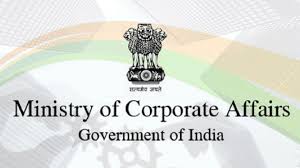Understanding the Difference Between Trademark and Registered: A Comprehensive Guide to Brand Protection

In today’s competitive business landscape, protecting your brand identity is essential. One common question that arises among entrepreneurs and business owners is the difference between trademark and registered trademarks. Whether you're launching a new business, creating a unique logo, or establishing a brand identity, understanding how trademark protection works can help safeguard your intellectual property. In this article, we will explore the difference between trademark and registered marks and clarify the confusion between the ™ symbol and the ® symbol. By the end, you will have a deeper understanding of how trademarks and registered trademarks differ, their legal implications, and why it's important to register your trademark for stronger protection. A trademark is any symbol, word, phrase, or design that helps distinguish one company’s goods or services from those of another. It acts as an indicator of origin, allowing consumers to identify the source of a product or service. For instance, the word "Coca-Cola" or the Nike swoosh logo are both trademarks that immediately bring to mind specific brands. Trademarks can also be more than just words and logos. They can include packaging designs, product shapes, colors, and even sounds. One important aspect to understand about a trademark is that it can be claimed simply by using it in commerce. When you begin using a mark in business, it is automatically protected under common law. However, the protection offered by a trademark without registration is more limited in scope and difficult to enforce across large territories. For example, if you were to use the ™ symbol, it signifies that you are claiming trademark rights over a logo or brand name, even if it hasn't been formally registered yet. However, the protection is generally regional, and proving ownership of your mark can be difficult in case of infringement. A registered trademark, on the other hand, refers to a trademark that has been officially registered with a government trademark office, such as the United States Patent and Trademark Office (USPTO) or the Intellectual Property (IP) office in India. Registering a trademark grants you exclusive rights to use the mark nationwide and helps prevent others from using a confusingly similar mark. Once you register a trademark, you gain enhanced legal protections and can use the ® symbol next to your mark. This symbol signifies that your mark is officially recognized and legally protected. The key difference between a trademark and a registered trademark is that registration provides stronger legal rights, including the ability to take legal action in federal courts if someone infringes on your trademark. Additionally, it offers protection against importation of counterfeit goods through customs enforcement. Let’s explore in more detail the difference between trademark and registered trademarks. Here is a comparison of the two: While the ™ symbol provides some protection, registering your trademark (®) offers significant benefits that provide stronger and more reliable protection for your brand. Here are some of the key advantages of registering a trademark: Exclusive Nationwide Rights: A registered trademark grants you exclusive rights to use your mark across the entire country, not just within your region. Legal Presumption of Ownership: Once registered, your ownership of the trademark is legally recognized. This makes it easier to prove ownership in case of a dispute. Enhanced Ability to Enforce Rights: With a registered trademark, you have the ability to sue in federal courts for infringement and take legal action to protect your brand. Prevent Importation of Counterfeit Goods: With registration, you can prevent the importation of counterfeit goods by customs authorities. Licensing and Brand Value Boost: A registered trademark can help increase the perceived value of your brand, making it easier to license your trademark or sell products under your name. If you're looking to transition from the ™ to the ® symbol, the trademark registration process in India is straightforward. Here's a brief outline of the steps involved: Trademark Search: Conduct a thorough search to ensure that your desired trademark is unique and not already registered. Application Filing: File your application with the trademark office either online or through the traditional offline process. Government Examination: The trademark office will examine your application to ensure compliance with legal standards. Objection Handling: If there are any objections or conflicts, you will be asked to address them. This could involve clarifying your trademark's uniqueness or making adjustments. Publication: Once your trademark is accepted, it will be published in the trademark journal for public opposition. Final Registration: If no oppositions arise, your trademark will be registered, and you can officially use the ® symbol. While using a ™ symbol can provide basic protection, registering your trademark is a wise decision for several reasons. Here are some situations when you should consider registering your trademark: Business Expansion: If you plan to expand your business to new markets or nationwide, registration ensures that your brand is protected in all areas. Risk of Imitation: In competitive markets, registering your trademark helps prevent competitors from imitating your brand. Digital Presence: As businesses increasingly operate online, registering your trademark helps protect your brand from digital infringement. Franchising or Licensing: A registered trademark adds value to your business, especially if you plan to franchise or license your brand. Many misconceptions exist about trademarks and registration. Let’s address some of the most common myths: “TM gives the same protection as ®”: While the ™ symbol offers some level of protection, it doesn't provide the same comprehensive legal rights that a registered trademark (®) does. “I don’t need registration if my domain name is secured”: Owning a domain name doesn't grant trademark rights. Only registration offers full legal protection for your brand. “Only large businesses need trademarks”: Small businesses and startups should also protect their brand by registering a trademark. It’s never too early to safeguard your intellectual property. “I can’t register a trademark unless I’m using it”: You can register a trademark even if you haven’t yet begun using it, as long as you have a bona fide intent to use it. To make the difference between trademark and registered more tangible, let’s look at a couple of real-world examples: Nike: The Nike swoosh logo and the tagline “Just Do It®” are both registered trademarks. This ensures that no other brand can legally use the same design or phrase. Local Café: A local café may use a slogan such as “Fresh Brews™” to indicate that they are claiming rights over the phrase, but since it isn’t registered, they lack nationwide protection. At MyCompanywala, we make the trademark registration process simple and hassle-free. Our services include: Trademark Search and Filing: We help ensure that your trademark is unique and assist with the registration process. Affordable Pricing and Fast Processing: Our pricing is competitive, and we ensure a fast turnaround time. Ongoing Legal Support: We provide continuous support for objections, renewals, and other legal requirements related to your trademark. Understanding the difference between trademark and registered marks is essential for protecting your brand. While both ™ and ® symbols are important, registering your trademark provides additional security and strengthens your legal rights. Don't wait—take action to protect your intellectual property and ensure the future success of your business.What is a Trademark?
What is a Registered Trademark?
Key Differences Between Trademark and Registered Trademark
Benefits of Registering a Trademark
The Trademark Registration Process in India
When Should You Register a Trademark?
Common Myths About Trademark Registration
Real-World Examples of Trademarks vs Registered
How MyCompanywala Can Help You
Final Thoughts

























.jpg)
.jpg)



.jpg)
.jpg)
.jpg)
.jpg)










